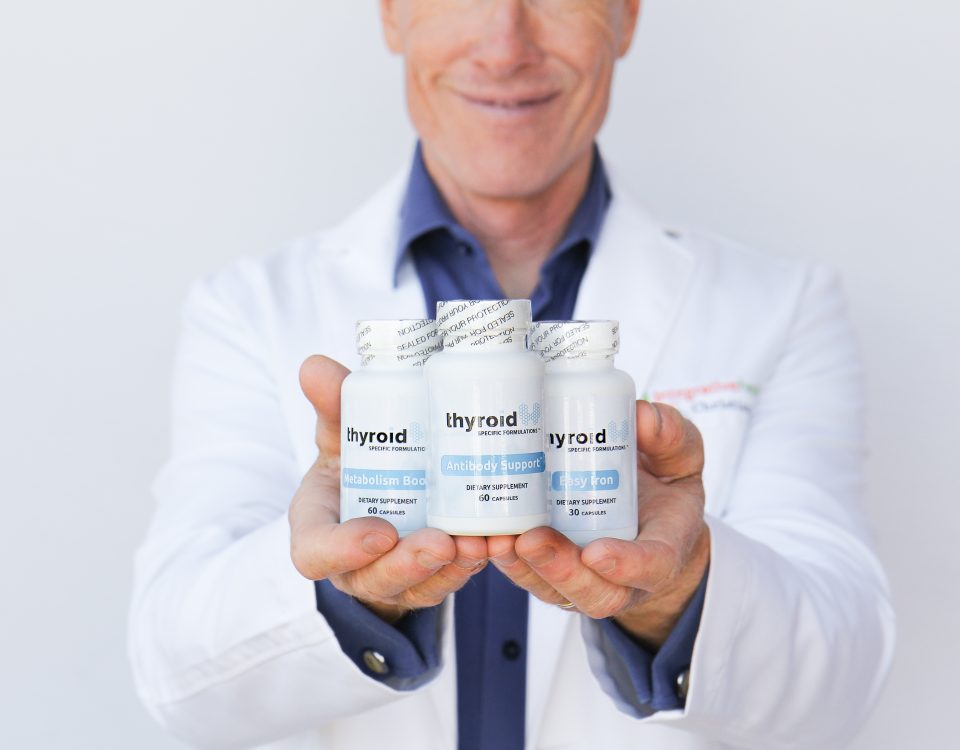It’s no surprise that the genetics that correspond to the risk of thyroid disease also happen to align with those affecting iodine metabolism. Essentially, if you’re already prone to thyroid disease, you truly can’t handle excesses of iodine. Even a little bit can be harmful.
In the modern world, we get food from all sorts of geographic regions, as well as a wide array of food types. This means that iodine deficiency for adults in the modern world is exceedingly rare and all but vanished. Regardless of our diets, we get plenty of iodine.
The main thing I want you to take away from this is that iodine is essentially everywhere, so you need to be aware of it. More than that, though, you need to be careful that you’re not ingesting so many sources of iodine that you risk going into excess.
Selenium and Thyroid
Following iodine, selenium, and its relationship to your thyroid is the next most important thing that we need to cover. We kind of have the opposite problem with selenium than with iodine, that many people can be low in it.
While selenium can be found in a wide range of whole foods, going on more restrictive diets may lead to missing out on the amounts that you need. Not consuming nuts or grains, or avoiding a lot of animal foods, can be a leading cause of selenium deficiency.
Selenium helps to control how much thyroid hormone we make, how well it leaves the thyroid, and how it is used in all the various parts of the body.
The interesting part is knowing that selenium in supplements and selenium in the diet play different roles based on different chemical pathways. This adds a layer of complexity because it emphasizes that we need to get selenium in different ways.
It is possible to get too much selenium in supplementation, somewhere around 400 micrograms per day, so that’s something we need to keep in mind. That said, excess in the diet is pretty unlikely, due to a lack of truly dense sources of selenium.
Zinc and Copper
These are both important nutrients, but what’s perhaps more important is the balance required between the two of them.
Zinc is a big part of the deiodinase enzymes. These are the enzymes that regulate iodine in the body, and encourage proper breakdown of thyroid hormone and usage therein.
Vitamin D
Vitamin D plays a big role in regulating the immune response, helping to minimize autoimmune reactions. It also helps to ensure that the body is repairing connective tissues effectively.
In North America, the rates of people being low in vitamin D are quite high. And, like a lot of nutrients, getting too much vitamin D can take away the benefits of it entirely.
Enough is good, but more than enough is counterproductive.
Iron
The thing about iron is that it’s a bit of an outlier. Some people need it badly, but others do not. If you don’t need it, there’s not a lot of danger in taking it in the short term. But there really isn’t any benefit, and there can be risks if you take it on a long-term basis.
Knowing your iron status is kind of the main takeaway here. If you’re low in it, then you can take steps toward correcting that. Mainly, though, you simply should have a sense of where you stand — and then correct for it, if it’s an issue.
Vitamin A
Vitamin A is critical for something called thyroid cell signalling. This is a big part of how your thyroid responds to thyroid stimulating hormone (TSH), which is a signal from the pituitary gland telling the thyroid to get to work.
Those who are low in active forms of vitamin A may not respond properly to those signals.
Magnesium
This is important for thyroid hormone utilization, as well as helping to offset some of the negative symptoms like fatigue. Some papers have shown that up to half of adults may be low in magnesium at any given point in time.
Vitamins B12 and B1
B vitamins are critical because they are such a big part of maintaining energy output, offsetting brain fog, and maintaining mental energy. They’re also important because many with thyroid disease can have autoimmune conditions that make them not absorb B12 properly.
Vitamin E
This one is important for helping prevent damage to the thyroid cells from oxidative stress.
Omega-3 Fats
Another good essential nutrient that plays a big part in how we make the compounds that regulate the inflammation in the body.










